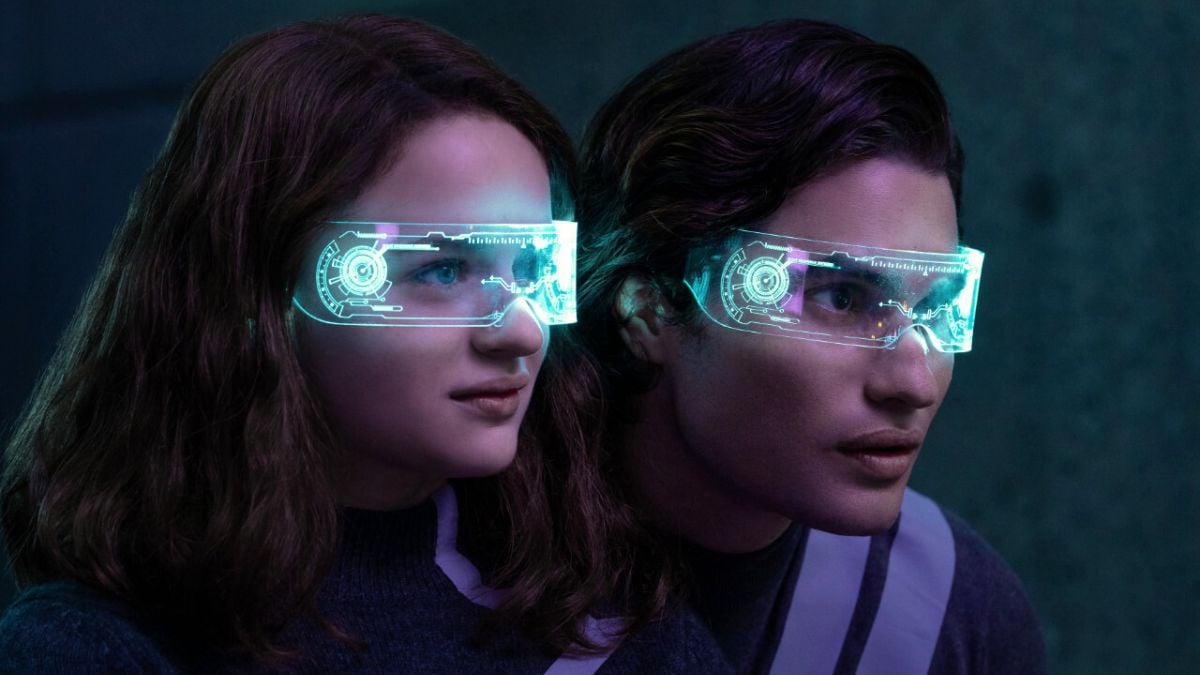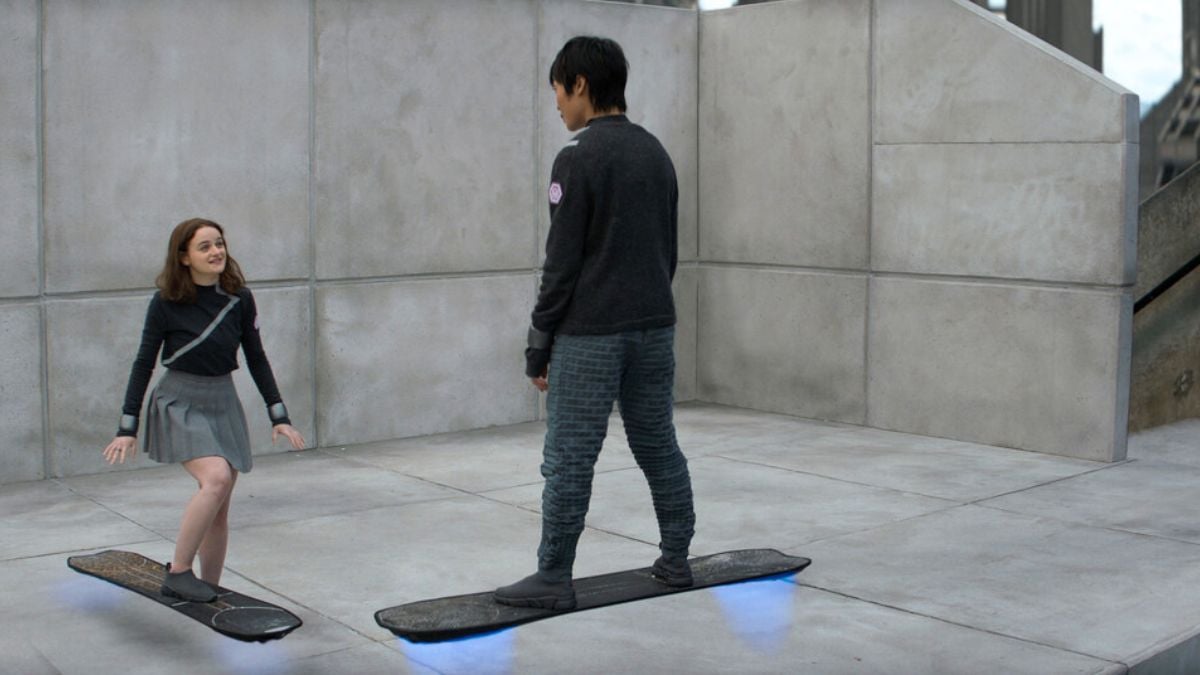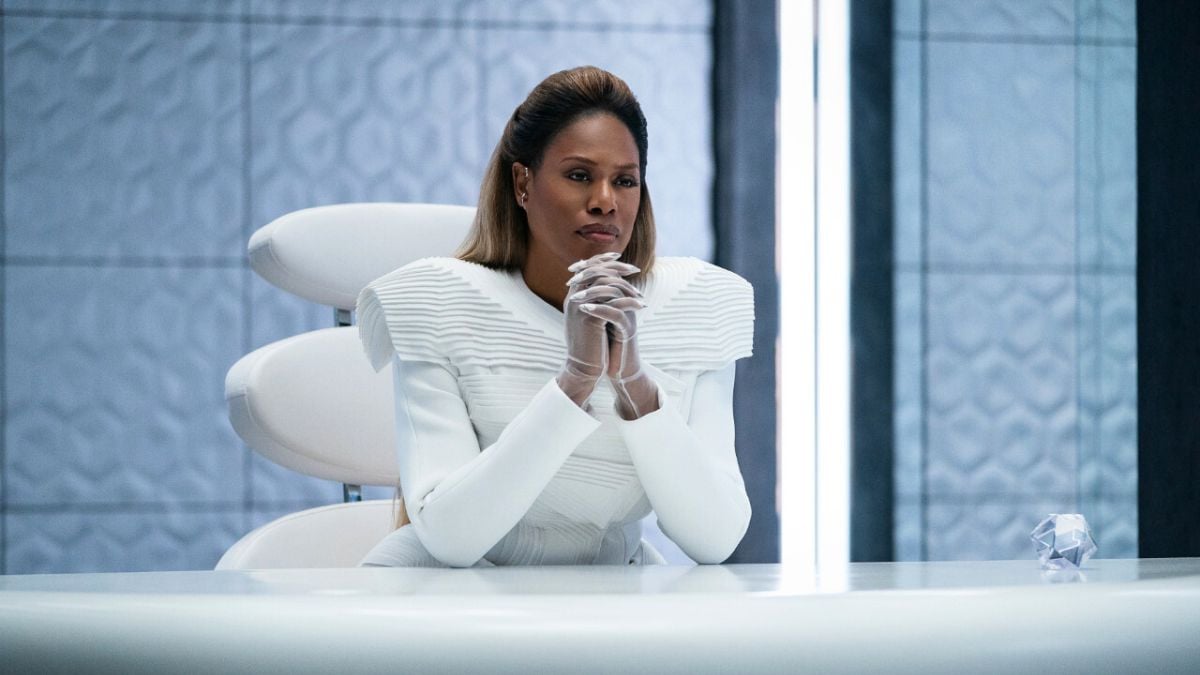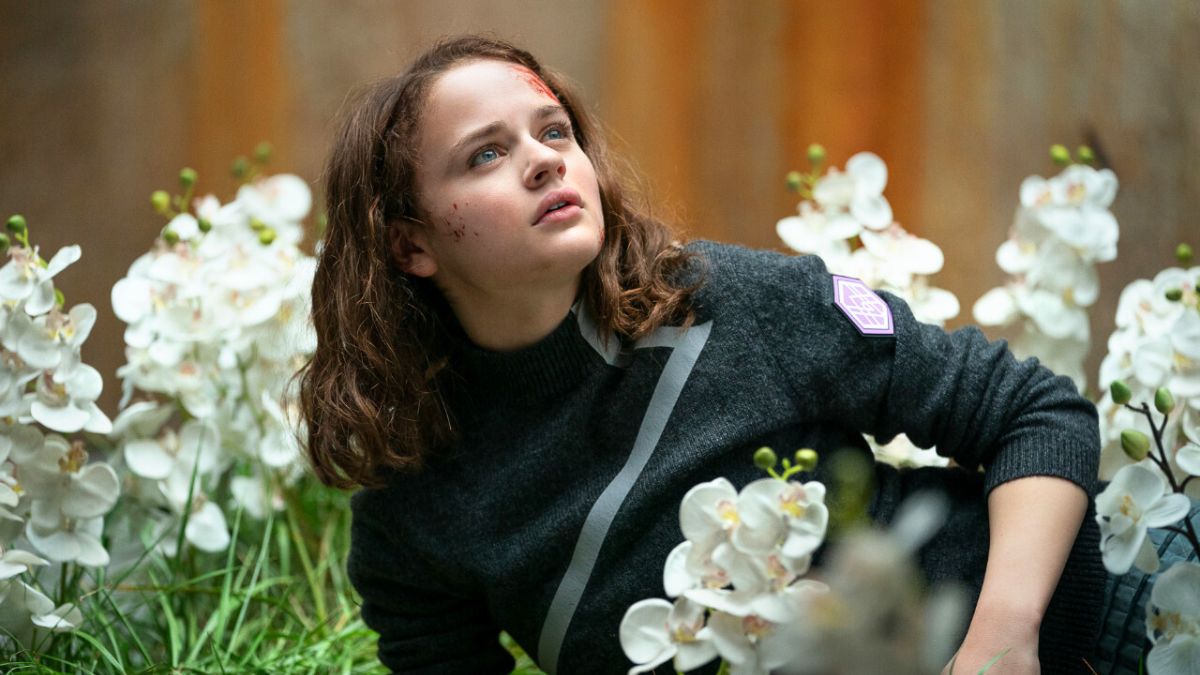Based on Scott Westerfeld’s hit young adult novels, Uglies kicks off a new Netflix franchise. Or at least it would if the movie had any idea of what makes dystopias compelling in the first place.
Uglies is set in a post-scarcity world after the discovery of a miraculous source of energy ensures humankind has moved past fossil fuels. Without the need to fight for resources, humanity waged war for other reasons. Utopia was only achieved once a group of scientists proposed forcing the masses to undergo extensive plastic surgery so that everyone could become their best selves. Once everyone looks the same, all conflict born from our inability to accept differences ceases to exist.
Of course, behind this seemingly peaceful society hides a dark secret. So, Uglies slowly unveils the truth of this new perfect world as protagonist Tally (Joey King) embarks on a journey that shatters her worldview.
The core concept of Uglies already challenges suspension of disbelief. For instance, it’s hard to imagine how plastic surgery can erase human differences on a cultural and religious level, so the audience is left wondering how these divergences got erased. Furthermore, Uglies society is still quite diverse, with people from different ethnic backgrounds living together in harmony, only with surgically stretched faces. So, if this new world is so accepting of differences, it’s hard to understand why the miraculous Procedure is even needed.
That marks a stark change from Westerfeld’s original work and Netflix’s adaptation. The books are rightfully concerned about Westernization, a tendency to flatten beauty standards according to the classic European template. That’s why, in the books, Black people lighten their skin and Asians enlarge their eye shapes. Westerfeld’s critique leans over structural racism, as his dystopia exaggerates a process we can observe in the real world, where plastic surgery is often used to expunge ethnic differences. Netflix’s Uglies seems to have completely missed the point, as the movie doesn’t even touch this discussion.
The movie’s message is also weakened by casting decisions. As the trailer for Uglies anticipates, heroine Tally embarks on the journey of a lifetime once she uncovers a group of people who fight against the city’s mandatory Procedure. The story forces Tally to confront a different society, where people wave their birthright to become Pretties and find happiness by simply being who they are. Yet, this community of “Uglies” is still led by two men with perfect jawlines and defined muscles, which kinda defeats the purpose of telling people to accept their imperfect bodies (remember, kids, you too can be “ugly” just like Keith Powers!).

Netflix’s Uglies is equally sabotaged by its inability to properly handle worldbuilding. As a fantastic future society, Uglies is loaded with miraculous technology that never really gets explained despite working like magic. Meanwhile, the movie wastes too much time lecturing the viewer about this dystopia’s core concepts. Not only does Uglies opens with a lengthy narration, but it’s also filled with expository dialogue.
Instead of a movie, Netflix’s Uglies feels like a teaching device designed to prepare the audience for future franchise installments. That makes sense, as the movie is the obvious first chapter of a bigger story, with an unsatisfying ending included. Even in the case of highly entertaining stories such as Alita: Battle Angel, a sudden interruption of the narrative can be extremely harmful. Of course, that’s even worse when the film in question is a slog.

It’s hard to accept Vanessa Taylor, an Academy Award-nominated screenwriter, has co-written Uglies. Taylor partnered with Guillermo del Toro to craft The Shape of Water, a profoundly emotional tale of love that became a hit thanks to its nuanced and layered approach to human relationships. Uglies, in its turn, drags King’s Tally from scene to scene, so desperate to move the plot forward that it forgets to give the protagonist the space she needs to process her experiences. The same is true for side characters, whose motivations can change and adapt to the needs of the next set piece, deprived of any believable development.
It would be an error to pin the blame for this disastrous script on Taylor, though. Uglies has three co-writers: Taylor, Jacob Forman, and Whit Anderson. That’s a prominent Hollywood red flag. It shows the goal of a production was not to offer creative freedom for the crew to imprint their voice and vision in the final work. Instead, too many writers smell of executive meddling as a script goes through rewrites to fulfill a checklist born from the latest market research. That’s precisely how Uglies feels, a factory movie created in a production line, not a piece of art anyone should care about.

Uglies’ editing also betrays the movie’s birthing pains. This action-filled dystopian adventure clocks at 90 minutes, excluding credits. There’s not enough time to flesh out characters or give the audience some breathing space, especially when you must have mandatory training montages and explosive final battles — and don’t forget the love triangle! As a result, everything moves as fast as possible while the main character jumps from one place to the next, often changing her mood.
At one moment, Tally will be sad about losing an old friend. A few seconds later, she’s laughing her lungs out while learning to hoverboard. Whatever happened at the cutting board turned Uglies from a movie into a connection of semi-connected scenes. That’s the perfect way to destroy a franchise’s potential and neuter the cast’s efforts to deliver believable performances.
There’s only so much an actor can do when the material they get is this weak. Even so, King tries her best to give Tally some personality. Unfortunately, while King has a few shining moments scattered through Uglies’ runtime, the whole thing lacks the coherence that would allow the audience to relate to the protagonist. That’s even worse for the supporting cast. Chase Stoke’s Perri and Brianne Tju’s Shay are written with the depth of a puddle. Powers’ David is given something more to do but still feels underbaked at best.
As for Laverne Cox, her talents are wasted with the cardboard villain Dr. Cable. It’s painful to watch Cox delivering an evil-genius monologue while making all the stupid decisions that allow her to be easily overpowered by a bunch of children. This is a history-making actress who proved time and time again how she can handle complex parts, but Uglies still chains her to the most boring antagonist tropes they can find.
All in all, there’s not much to salvage from Uglies. There are some thrilling moments, and the special effects are good enough to keep you distracted. Nevertheless, cinema is, first and foremost, a storytelling device. Without a good story, everything else falls apart.
- Joey King tries her best to give Tally some personality
- The movie has decent special effects
- Poor worldbuilding and excessive exposition
- Rushed 90-minute runtime affects character development and pacing
- Choppy editing creates a disjointed narrative
- Unsatisfying ending that feels like a setup for future installments
- Laverne Cox's talents wasted on a poorly written villain
- Feels like a factory-produced movie rather than a work of art











Published: Sep 13, 2024 04:15 am